Power struggles in Muslim states
The ruling circles in Muslim states lack new ideas to sustain the voluntary loyalty of the people.
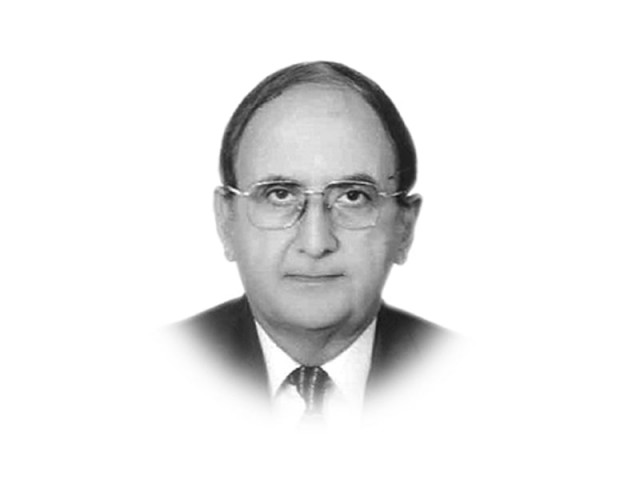
The writer is an independent political and defence analyst. He is also the author of several books, monographs and articles on Pakistan and South Asian Affairs
The Iraq government faces a militant challenge in Anbar province where extremist and al Qaeda-type groups have recently established their domain in parts of that province. The sectarian issue has gained prominence in Iraq. Therefore, despite the fact that the US troops left Iraq some years ago, it has not seen stability in parts of its territory.
Libya has not seen stable peace after the overthrow of the government of Colonel Gaddafi and his assassination. Different tribal and fundamentalist groups are fighting each other and the weak Libyan government. Syria has been experiencing two-fold internal violence for the last three years, with a struggle for power between the Damascus government and its opponent armed groups supported by Saudi Arabia and Qatar. The groups fighting against Bashar alAssad’s government are also fighting with each other. Some hardline groups with linkages with al Qaeda are also trying to eliminate their rival insurgent groups.
The internal conflict in Bahrain is a power struggle among two major groups: the government and anti-government groups. This has strong religio-sectarian colours because the majority of population is Shia which finds itself excluded from the power structure. Yemen is experiencing tribal and separatist challenges coupled with the increased activity of al Qaeda and its affiliated groups.
Egypt could not achieve stable peace after the removal of Hosni Mubarak in 2011. In 2013, the powerful Egyptian Army took control of the state by dislodging elected President Morsi who was backed by the Muslim Brotherhood. Morsi assumed presidency in 2012 and used his powers to strengthen his party’s political and ideological control over the state and society in total disregard for other groups. This sharpened divisions in politics, enabling the military to knock out the Morsi government. The Muslim Brotherhood’s resistance to military rule did not succeed because the resistance was initiated only by Muslim Brotherhood’s hardcore. However, internal violence erupts from time to time.
Each country has its peculiar features of politics and society. Therefore, the details of the internal conflict vary from country to country but there are some common factors that are found in these Muslim countries, which show that several struggles are going on simultaneously. The first common factor in these Muslim states is the growing pressure of socio-economic injustice. Each state has an affluent class of people, mostly the rulers or their close associates. However, a large number of people suffer from poverty and underdevelopment with little hope of improvement of their conditions. These people have little attachment with the state and its political order. These alienated people are attracted to various appeals based on ethnicity, tribe, language and religion and religious sects. There is a crisis of leadership in these countries. Either the military provides leadership or a combination of military, bureaucracy and the affluent elite does. Their political appeal does not cut across various divisions in society. Consequently, the national framework is relegated to the background and people think in terms of identities smaller than the state.
The second common factor can be described as a pure and simple power struggle among competing interests where the tradition of constitutionalism and rule of law is poor or non-existent. Therefore, invocation of the law and constitution depends on the needs of a competing interest. Law and constitution are supported if these help a competing group to achieve its political objectives.
Third, the role of abstract ideologies has declined at the global level in the post-Cold War era. The West’s efforts to project the New World Order and globalisation that emphasised connectivity based on free trade and privatisation against the backdrop of liberal democracy could not attract much support in the Muslim world. The so-called Arab Spring brought down some dictatorships but no credible political and social alternative was evolved. In this situation of intellectual void, many political groups in Muslim countries sought salvation by adopting religion as their political ideology.
Different militant and non-militant groups are engaged in three-types of struggles. First, they are fighting against the West in order to push back its cultural and political impact on society. This struggle becomes more serious if the West, especially the US, is viewed by them as a supporter of their adversary group or the state where these groups are engaged in religious and political struggle. Second, they often challenge the writ of the state in order to paralyse it and take its control to impose their preferred religious order. If that is not possible, they want to create a territorial enclave for themselves. Third, these groups also compete with each other. Each militant group claims itself to represent the ‘genuine’ interpretation of religion and wants to destroy any group that does not subscribe to its view. These militant groups also fight with each other for controlling territory and material resources.
These struggles have increased divisions in the society. The state is either under siege by these groups or fighting these groups. This has reduced the capacity of the state to fulfill its obligations towards its citizens because continuous strife has adversely affected the economy, and law and order. These internally divided states also become vulnerable to external intervention by Western states and other Muslim states that have some political interests in and around these states.
These states are finding it difficult to maintain internal cohesion, sustain a stable governance system and ensure equitable economic growth. The ruling circles lack new ideas to sustain the voluntary loyalty of the people and the groups challenging them have no clear vision of the future of the state and society in the 21st century. These problems are not expected to be resolved in the near future. Published in The Express Tribune, February 10th, 2014.
Like Opinion & Editorial on Facebook, follow @ETOpEd on Twitter to receive all updates on all our daily pieces.

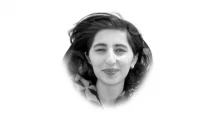


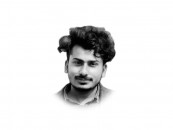





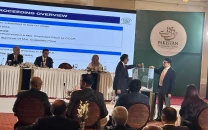

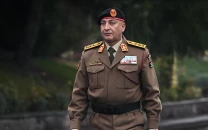



COMMENTS
Comments are moderated and generally will be posted if they are on-topic and not abusive.
For more information, please see our Comments FAQ